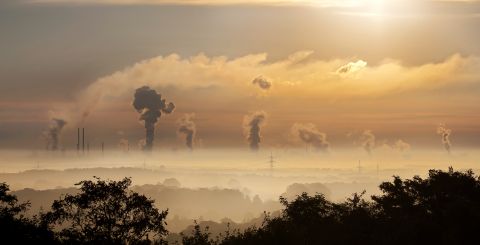
To mark Endangered Species Day on 20 May, we are highlighting the impact of climate change and other human activity on global biodiversity during the two year delay to COP15 - the UN conference at which 195 countries are tasked with agreeing a deal to stem damage to plants, animals and ecosystems.
Alan Knight OBE, President of International Animal Rescue, says: “COP15 was originally due to take place in October 2020 but has been postponed multiple times owing to the pandemic. Now we hear it’s scheduled for October 2022. During the two years that this meeting has been delayed, the disastrous impact of human activity on life on earth has intensified.
“More than 100,000 species are likely to have become extinct* since the original date for this crucial meeting which aims to produce an agreement among world leaders on how to halt the decline in biodiversity. There have been two whole years of inaction at a time when, if we want to prevent species and ecosystems from vanishing forever, we don’t have a moment to lose. Human activity is causing these extinctions and it’s absolutely vital that human behaviour changes - not tomorrow or when we all get round to it - but now! The decisions and action taken at COP15 will be the difference between life and death for the earth’s endangered species.”
2021 was one of the seven warmest years on record** with severe heatwaves and extreme temperatures in much of the world. Fuelled by the heat, catastrophic wildfires engulfed everything in their path. Human lives were lost and homes destroyed, while millions of wild animals and their habitats were wiped out.
“This very day I have read about birds falling out of the sky in India because of the soaring temperatures,***” says Knight. “This apocalyptic image is climate change in action and delaying our response to it any longer is not an option!”
During the two year delay to the meeting, individual species that were officially declared extinct include the St Helena darter dragonfly (Sympetrum dilatatum), found only on St Helena, a tiny volcanic island in the South Atlantic Ocean; the Chiriqui harlequin frog (Atelopus chiriquiensis once abundant but no longer found in Costa Rica and the Kaua’i akialoa (Akialoa stejnegeri), a rare and unique bird from Hawaii, declared extinct in September 2021.
Knight adds: “While these species may not be household names, they were all an integral part of the complex ecosystems that keep our planet healthy. Every loss of a species, however small or insignificant it might seem to the uninitiated, is another nail in the coffin of the natural world.
“Every day, all across the world, animals, plants and ecosystems are losing out to the disastrous impacts of human activity. We’re constantly warned that the clock is ticking and time is running out to reverse the effects of climate change and biodiversity decline – and yet these issues seem repeatedly to drop down the list of global priorities.
“There can be nothing more urgent than the future and health of life on earth. There can be no more excuses and no more delays. The natural world is disappearing and dying both before our very eyes and also out of sight of us all. Species we have never heard of are being lost to the world forever.
“Let there be no further delays to this crucial meeting of COP15,” Knight concludes. “This Endangered Species Day we call on world leaders to put the planet first for once and focus on halting the decline in biodiversity for all our sakes.”
In the build up to the COP15 meeting, we are running a campaign entitled: “COP15 are you listening?” We are gathering and collating messages from people all across the world calling on world leaders to heed the public’s concerns and take decisive action to save the natural world while there is still time.
Visit www.internationalanimalrescue.org/cop15 to add your voice.
* https://www.cbd.int/doc/speech/2007/sp-2007-05-22-es-en.pdf ii
** https://theconversation.com/2021-was-one-of-the-hottest-years-on-record…
*** https://www.independent.co.uk/climate-change/news/india-heatwave-2022-b…

